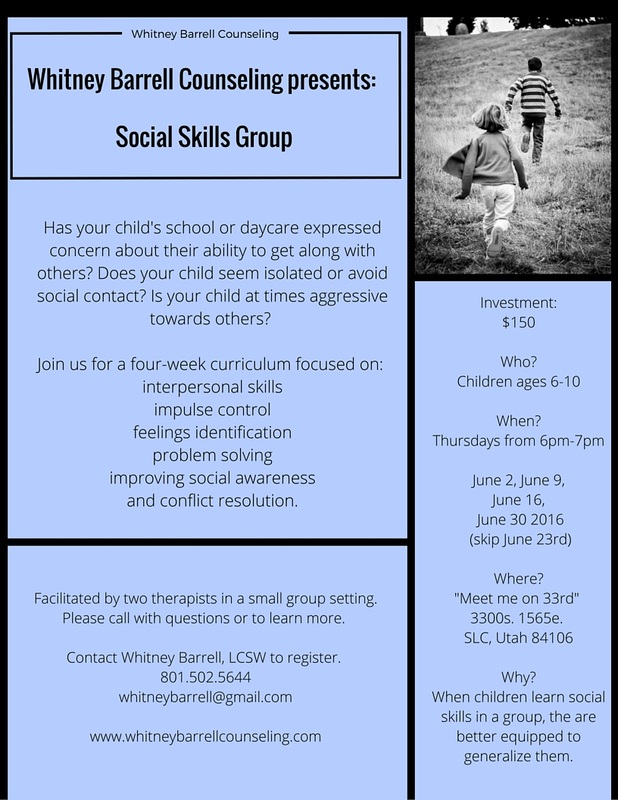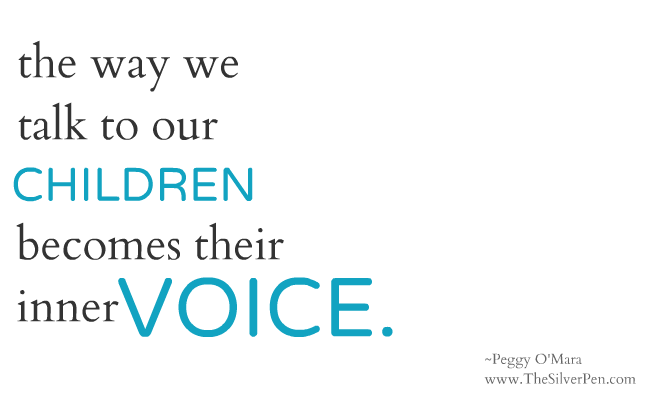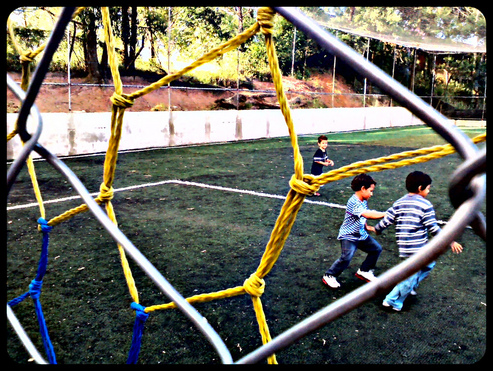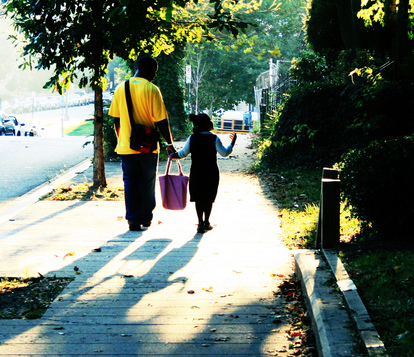|
Developing Confidence or self-esteem is often a topic in sessions with teens. In a developmental stage where they are forming their identity, values and becoming more and more aware of the complexity of human relationships it's a topic we often circle back to. But, as a therapist I find it's a slippery one, a concept that doesn't lend itself to explanation. This video, along with it's practical tips is well done. Take a look, for yourself, or for your teen. Lesson made in partnership with the Always #LikeAGirl campaign, animation by Kozmonot Animation Studio. I am very, very excited to announce a collaboration a colleague and I have been working feverishly on. Shannon Hickman is a fellow clinical therapist who specilizes in sex therapy. In her private practice she treats couples dealing with a myriad of issues related to sex, intimacy and their implications.
Shannon and I are both new mothers. We starting talking about how important it is to us that our girls feel comfortable in their bodies, think about and experience sex without shame and get their information from us (rather than rumors and school yard pals). So, we started digging into the research about how to ensure this happens. Lucky for you, we've distilled all of this down into a parenting series that we're offering to parents who feel as passionate about this issue as we do. We plan to discuss how our own thoughts about sexuality have the tendency to bias our discussion with our kids, we will talk about age- appropriate sexual development, break down the nitty gritty on just how to share information about sex and cover any other questions you can conjure up. It's going to be a great time, join us. If you're interested in a little taste, check out the KSL article we wrote to give you an idea of where were headed. Beyond the Birds and the Bees: Discussing Healthy sexuality with your child. By Shannon Hickman, LCSW and Whitney Barrell, LCSW First published by KSL July 29, 2015 Most parents tend to dread, or at least feel intimidated by, having “the talk” with their child. There are a myriad of resources discussing what topics to introduce at which age, and what is characterized as normal sexual development. The National Child Traumatic Stress Network offers a comprehensive outline of healthy sexual development. But, what we’d like to offer is a broader view of this “talk,” and some factors to consider. Parents typically think of the “talk” as discussing sexual intercourse in a framework of how children are conceived. Rather than just focusing on the mechanics of how babies are born, consider broadening the discussion based on the child’s age and ability to understand concepts. No one knows your child better than you do, and as parents, your deep love and connection to your child makes you the best person to talk with them about sex. Before talking with your child about sex, think through your own values about the role of sex in a relationship, healthy sexuality, what you want your child to understand about their body, and how you want them to feel about their body and their sexuality. Think back to your own experience when learning about sex and intimate relationships and how your parents or others discussed this topic with you. Are there important values or standards that you want to impress upon your child? Consider the biological, emotional, social, relational and spiritual aspects of sex and how your beliefs and values fit into these areas. Was the way your parents shared this information with you successful? Is there something you’d like to do differently? -Healthy Sexuality Often children grow up viewing sex as a physical gratification rather than equating it to love and fulfillment. It is important to remember this is not a one time conversation. It is an ongoing topic of discussion and the more open the child can be, the more support a parent can provide in helping to positively shape their child’s sexuality. With our children being bombarded daily in the media with sex and sexual images, it is more important than ever to help them to develop healthy attitudes about their bodies and sexuality. -Attitudes Identifying your own beliefs and attitudes about sex ahead of time will allow you to work through some of your own anxieties prior to having the discussion with your child. We as adults have often developed unhealthy attitudes about our bodies and sex that may affect the way we communicate with our child during discussions about these topics. -Practice Most parents feel a degree of anxiety in discussing sex with their children. Examine what makes you anxious: is it talking about a private topic; is it that you don’t feel prepared? Keep in mind that the tone or level of anxiety will convey more about how you feel about the topic than the actual content you share. If you want to exude acceptance and openness, make sure your face, and body positioning also conveys this. Plan out what you’d like to tell your child and choose words that feel comfortable for you. -Conversation starters Using everyday life to bring up topics of sex and sexuality are typically the best way to proceed. If you see something on TV with your child that feels like a “teachable moment,” take it. You might ask, “what do you think about all of that?” Focus on what questions they are asking. If your child asks “where did I come from?” He may just be asking which hospital he was born in? Clarify the specific question, then answer it as succinctly as possible. Follow up with “did I answer your question?” Follow their lead. Also consider the importance of strengthening your relationship through special times and activities that promote heartfelt sharing and connection. -Avoid metaphors. Young children are concrete thinkers. Metaphors tend to complicate things. If you are talking about specific body parts or functions of body parts, be as direct as you can, while also keeping in mind the child's developmental stage. It is helpful to use the appropriate names for body parts. This helps the child to begin to understand they do not have to be ashamed or embarrassed about any part of their body. This approach will begin to set the foundation for positive body image and healthy sexuality. -It’s not one talk, it’s many. Rather than sitting down with your child once they reach puberty to talk with them about sex, consider starting early and building on the depth and complexity of this topic. Identify an end goal. Parents may want their child to grow into an adult who is capable of an intimate relationship without feeling ashamed. If this is your goal, work backwards, expounding on experiences and discussions to support your goal. Consider the use of tools such as age appropriate books to help guide you in your discussions. Shannon Hickman, LCSW is a trained sex therapist. Whitney Barrell, LCSW specializes in child therapy. Together they are leading a parenting series on how to talk with your child about healthy sexuality. Parenting is the most demanding job we’ve got.
Most parents aren’t making deliberate decisions about what skills they need to possess to be the best parent; rather they are ensuring teeth are brushed, homework is done, and talking with children about their ideas and goals — which turn out to be important parenting skills. Parenting absorbs us; it’s hard to get an objective look around. We don’t often rely on science to guide our parenting decisions. It’s more likely that we consider the type of parents our parents were, and either duplicate the parts we felt were effective, or turn the other direction entirely. Women talk with their girlfriends about discipline or choosing a good school. Men trade stories about their children and their relationship with them. We ask the pediatrician, and we notice the skills other parents utilize at the park and we integrate them into our routine. We Google. We read parenting books. And when we’ve done all of that, we realize how much contradiction exists. Dr. Robert Epstein has done the legwork for us. He’s compiled a list of 10 parenting competencies that are predictive of good outcomes. In this case, good outcomes for children are defined as a child's success, health and happiness, as well as the quality of the relationship between parent and child. Eleven parenting experts evaluated the 10 competencies identified, and data was collected from over 2,000 parents who identified both the outcomes of their children (health, happiness, success) and how closely they parented related to the 10 competencies. Using this data, Epstein ranked what competencies had the most impact down to which had the least:
Love and affection Love and affection tops the list. The one-on-one time we spend supporting our child has a direct impact on his or her degree of happiness, health and success. Parents are powerful. Stress management and relationship skills Interestingly, competencies ranked No. 2 (stress management) and No. 3 (relationship skills) are factors that don't involve our child directly. How a parent manages stress and the skill he or she possess in relating to other adults aren't typically considered parenting skills. But, as we see from where they rank, are factors of high importance. Mothers and fathers in healthy and satisfying marriages are more engaged in their roles as parents and have more positive attitudes toward their children. Frequent and intense conflict, on the other hand, is associated with unresponsive and insensitive parenting.–Urban Institute Stress management is a measure of how well a parent manages his or her stress. If a parent can rely on healthy ways to minimize stress, he or she is more accessible to the children and has more time for love and affection. This finding dovetails with what we know about maternal depression and its impact on children. When mothers are depressed when their children are young, they may be fighting to manage basic care-giving tasks (food, hygiene, etc) and don't have the energy for important bonding that takes place early on. Regardless of a child's age acting as a role model by caring for yourself, will pay off for the entire family. Relationship skills reference a parent's ability to communicate and compromise, whether he or she is parenting in the same household or co-parenting due to divorce or separation. Children show improved outcomes when parents are able to speak kindly to one another and model healthy relationship skills. Prolonged exposure to high conflict between parents has an impact on children's psychosocial development. Research by the Urban Institute goes further, reporting, "Mothers and fathers in healthy and satisfying marriages are more engaged in their roles as parents and have more positive attitudes toward their children. Frequent and intense conflict, on the other hand, is associated with unresponsive and insensitive parenting." Life skills Life skills are another domain where parents have a degree of control. Epstein defines life skills as one's "ability to provide for your child, have a steady income and a plan for the future." As we can see, many of these competencies are intertwined. Those who are financially stable have one less thing to worry about and one less stress to manage. Behavior management Behavior management is likely the competency most fuzzy for parents. There are myriad opinions on the best way to diffuse conflict with our child, or ensure that he or she complies with our requests. Recently, advances in neurosciencehave shed some light on this topic. We know that when a child is hyper- or hypo-aroused, he or she is unable to participate in problem-solving or skill-building. The good news is, despite all the contradiction in how to best discipline our child the approach we use isn't as important as it may feel. Besides, this competency falls in the lower third of the list. Religion Religion makes a surprising appearance on the parenting skills list. One theory is parents who support or encourage spiritual development may be a part of a broader religious community that provides support for the family spiritually and informally, and that leads to improved outcomes. Figuring it all out Parenting often feels sandwiched between guilt and shame. Being a parent seems to be a very public display of one's skills and abilities when this isn't the case. All parents, regardless of outside circumstances, desire for their children to be happy and healthy. How we progress toward that goal is determined by our history, values, experiences and opportunity. Among this list of 10, there is undoubtedly a place where we "have it down." If one is interested in testing where he or she falls among the 10 competencies, Epstein's website has a skills test that will assesses a person's strengths and provide feedback. First published by KSL on May 24, 2015. https://www.ksl.com/?sid=34582765&nid=1009&title=parenting-skills-the-top-10-suggestions-for-raising-happy-children&s_cid=queue-5 We use social skills in a broad sense every day. In a work environment sometimes referred to as soft skills, they enable us to work as a team, practice empathy and relate to others. Social skills are learned. We are born seeking relationships, seeking interaction, but it’s through practice and watching others that we learn how to implement social skills. Elementary school age children are the perfect example that these skills are learned, we see them practicing them every day. We see children bullying others or learning to compromise. The playground is a great big mixing bowl where kids can learn which skills will serve them and which won’t. Social skills are needed not only on the playground, but at soccer practice, in school, visiting grandparents and at the park. There are four skills sets that, if mastered, tend to promote healthy relationships in the long term. Research gathered by the Center for Parent Information and Resources found that when addressing social skills, successful interventions have some things in common. For example, the interventions focus on reflection and self awareness. Secondly, when children are walked through each step in the new skills, they are better able to retain and generalize it. When role-playing is used or specific skills are practiced in a group environment, children are able to master the skills. You will see these principles built into the suggestions to use for your child. Making and keeping friends It’s adorable to see young children walk up to one another at the park and confidently say, “Hi, my name’s Jack, do you want to play?” This is an example of a child who has been taught the social script for making an introduction. From here children learn to build by asking others questions, or inviting others to join in play with them. The ability to make and keep friends relies on a child’s ability to empathize, see things from another’s perspective and compromise. Young children are naturally egocentric, this is a normal developmental stage. Around age 4, children develop what is referred to as theory of mind, the understanding that others may have a belief, intention or knowledge that is different than their own. This is a developmental leap that allows them the capacity to engage in more meaningful friendships. If your child is struggling with this skill, you may put on your detective hat and do some observation while your child is at play. Is he isolating himself, hesitant to join others? Once he begins engaging with others, does he tend to become bossy and set the rules of the game? When you see one of these things happening, pull your child aside and say something like, “I noticed when you told Abby that she wasn’t playing the game right, she frowned and walked away. What do you think she might be feeling?” Continue to process this event with your child and help your child problem solve a way that will lead to the interaction the child wants. Encourage your child's ability to take the perspective of the other child and find a solution that works for everyone. Emotional regulation Emotional regulation is an umbrella for important skills such as impulse control and identifying and expressing feelings appropriately. If a child is consistently losing control and acting aggressively toward peers, that child is often ostracized and avoided. Impulse control plays a role in friendships. A child who is able to wait his turn or stay calm enough to be in a conversation with peers is more socially adept. Gaining emotional regulation begins with identifying emotions. You can encourage your child to notice changes in his body, for example, fists tightening when he is feeling anger. In order to regulate these strong emotions, the child first needs the ability to identify them. Once a child is able to pause between noticing a strong emotion and reacting to it, he can make a more calculated decision. Modeling this behavior for your child is often the best teaching tool. If you begin to become frustrated, you might say out loud, “I’m starting to get upset, I am going to sit down and take a few deep breaths.” This will show your child that each of us is responsible for managing how we feel and that even adults need a break sometimes. Sportsmanship Team sports are an excellent setting to practice social skills. Children are required to work together, handle disappointment and take turns. If your child is struggling with social skills it’s a good idea to encourage a team sport, that way she will have a consistent chance to practice improving her skills. Sometimes poor sportsmanship is rooted in a child's anxiety about her performance. Perhaps if she misses a shot she feels embarrassed or she is sensing underlying pressure from family members to succeed. Before she can improve her social skills in this area, she needs to be free of such barriers. Visualization and self-talk are good skills to practice if your child struggles with poor sportsmanship. Identify the triggers. For example, does your child lose control when the team loses? If so, review what self-talk might be occurring. Is she telling herself something like “you are the worst, you’ll never win.” Suggest an alternative, such as, “We didn’t win this time, but I played my best.” Refuting self talk takes practice. Use visualization by walking your child through what thoughts and feelings she may feel when the team loses, prompt her to use positive self-talk and visualize herself maintaining control. Conflict resolution Conflict resolution is another skill that is impacted by maturity. Our ability to use higher-level thinking such as planning and problem-solving doesn’t develop in our brains until we are well into our 20s. Despite this, elementary school age children can practice skills that will aid them in relationships. It is very common for children to struggle with ways to address conflict. Some children lack the confidence and skills needed to advocate for themselves, and as a result are stepped on by other children more willing to assert their wishes. Conversely, some children may bully others or use aggression to get their needs met. Keep in mind all of these skills are learned. Our expectation that children should always be seeking the most fair solution for everyone isn’t realistic. Compromising is a skill that is important if you live in a society that values cooperation. It isn’t in our DNA to solve problems peacefully, but it is “nurtured” into us. Improving conflict resolution relies on a child’s ability to hone the previously noted skills, of empathy, emotional regulation and good sportsmanship. This skill is most effectively addressed right when the conflict is occurring. This is the aim of social skill groups facilitated by play therapists. But you can also practice this skill with your own child. When conflict occurs between siblings or friends, consider asking the child to take a break for a few minutes to calm down if the conflict has risen to an aggressive level. Afterwards, practice talking through the thoughts and feelings the child had during the event and challenge the child to identify thoughts and feelings the other child may have felt as well. Prompt the child to consider an alternative, for example, rather than hitting and taking a toy, suggesting asking an adult for help, or finding another toy to play with. The barrier to conflict resolution without aggression is often impulsivity. If you can stop the child from acting out and walk through her choices, (and practice this over and over again), she will have a much better chance of doing it on her own. I often consider these social skills as life skills. They are the foundation of all relationships. Each interaction you have with your child has the potential to teach the child pro-social ways of interacting. We know that the playground can sometimes be the Wild West of childhood. But children who are able to navigate it effectively will be ready for the workforce — the Wild West of adulthood. Few things are more exciting to me then when "good parenting" is validated by science! Perhaps it's a throw-back to my early interest in chemistry and fascination with Albert Einstein. Even if science isn't your thing, if you are a parent, this information will be of interest to you. Read on.
Isn’t it great when science validates something we intuitively know? Such is the case with Dr. Michael Meaney, a professor of McGill University with an interest in maternal care, stress and gene expression. In the Annual Review of Neuroscience he published work centered on the natural variation he noticed in licking and grooming by mother rats. He found that the kind of care that mother rats provide to their offspring alters genes responsible for stress response. The rat pups who experienced more licking and grooming were identifiable by the anatomy of their brain. When Meaney followed the rat pups into adulthood he found that those who were licked and groomed were better at completing mazes and even lived longer. The mechanism at play is that those pups who were licked and groomed produced fewer stress hormones when faced with a challenge. This is important, because he know in humans, when our brains are bathed for too long in stress hormones we are always “on alert,” anxious and exposed to an increased risk of mental health issues, heart disease or diabetes. We want our stress hormones to kick in when we are in danger, then dissipate. The licking and grooming provided to rat pups served as a protective factor and prepared them to manage stressors into adulthood. What to parents of rats and parents of humans have in common? The capacity to provide affection and physical touch to their offspring. Dr. Meaney uses the implications of his work to note “Women’s health is critical. The single most important factor determining the quality of mother-offspring interactions is the mental and physical health of the mother.” This is true regardless if the primary caregiver is a mother, father or even grandparent. In subsequent research Dr. Meaney paired mothers who scored high on licking and grooming with rat pups who were not their biological pups and the outcome was the same. We have opportunities daily to engage with our children in a way that will better prepare them to ride the wave of adulthood in an emotionally healthy way. What does licking and grooming look like when you are in parenting a human rather than a rat? Good question. Many of the things you are already doing, for example, lotioning your child after a bath, playing patty-cake or “this little piggy.” Theraplay is a clinical intervention focused on building attachment between parents and children. One of the domains of focus is nurture, which is all about physical touch and expressing to the child “you are worthy of good care.” Some Theraplay activities include lotioning, which can be used as a variation for an older child. Start by placing dots of lotion along the child's arms, or face and slowly rub in each dot. Creating a secret handshake with your child. Giving your child and manicure or pedicure with a focus on physical touch and nurture. Face painting, a thumb war, mirroring, peek-a-boo. Using your finger to draw letters on your child’s back and see if they can guess the word. Create a variation of a song for your child, Theraplay uses Twinkle Twinkle Little Star, with a twist “Twinkle Twinkle Little Star, what a special boy you are, dark brown hard and soft, soft cheeks, big green green eyes from which you peek…. As you can see many of these activities are built into the way we interact with children already. By being conscious to include them in your daily routines you and your child will benefit. So, the next time you snuggle a newborn, or force your third grader into a hug, feel proud that you are having an impact--on a cellular level. **This was first published by familyshare at: http://www.familyshare.com/Parenting/biochemistry-of-good-parenting. Announcing an excellent way to ring in the New Year!
Social Skills Group
January 5th -February 9th 2015 Investment: $150 Where: Whitney Barrell’s office 684 e Vine Street Murray, Utah 84106 801.502.5644 **feel free to call with questions, or to see if your child would be an appropriate fit. Welcome Readers,
Below you will find an extended version of the article published by KSL. Please enjoy! As a child therapist, I often wonder what sets apart the children who are able to manage and thrive in adverse environments plagued by adversity, abuse and poverty, from those who seem to succumb to it. But, resiliency doesn’t have to mean the ability to bounce back from such extremes. Some children are just more flexible, able to pick themselves up and dust themselves off. Resiliency is a fascinating subject of study pertinent to parenting. In 2005 Human Development specialists Thomas Boyce and Bruce Ellis published a paper in the Journal of Developmental Psychology which provided a metaphor for a phenomenon they were seeing in their study of kids susceptibility to their family environment. They noted some kids were “orchids” and others were “dandelions”. Dandelion children can grow anywhere, they seemed to have the resilience to survive through difficult family life, poverty, abuse. The orchid child is highly sensitive to their environment, specifically to the type of parenting they receive. Those who are neglected by parents, either physically or emotionally are impacted in the long term as measured by teenage misbehavior including aggression, drug abuse and delinquency. Although, those same children who are nurtured- flourished. This was an interesting finding, it was a novel idea that that the orchid children had the capacity for both positive and negative outcomes. Long story short--researchers found variants in the children’s CHRM2 gene which interacts with the child's environment. When the variant is combined with poor parenting, these children exhibit outcomes such as aggression and delinquency. But, children with this same variant combined with attentive parenting were shown to have positive teenage outcomes. The take-home is that whether or not your child is a “dandelion” or a “orchid” it’s in their best interest to develop a sense of inner grit. We know that resiliency has factors that are functioning at a cellular level, but we also know those factors are impacted by our environment. And, as parents, we have some control over our child's environment. Undoubtedly, children are going to experience some sort of hardship in their early life. We can hope for bullying or the difficulty of transitioning into a new classroom vs. the more serious, abuse or loss of a parent. Children who are able to rebound from adversities are healthier psychologically, show better outcomes academically and socially. Resilience turns out to be a life skill, and research by the American Psychological Association as well as the American Academy of Pediatrics has shown it’s something we can cultivate in our kids. Dr. Kenneth Ginsburg of the Children’s Hospital of Philadelphia authored a guide in collaboration with the American Academy of Pediatrics focused on building resilience in children and teens. They’ve outlined several factors that parents can instill in their children. Connection It’s not a surprise that adults who have a network of friends and family to call on in times of stress show less mental health issues, live longer, and have fewer chronic health diagnosis. That being said, social skills are learned and childhood is the time for practice. By providing ample opportunity and modeling pro-social skills, your children will be on their way. The more stable, nurturing adults a child has to rely on, the better. Connections to others serves as a protective factor for children at risk. We know that if a child has just one person who consistently offers caring, unconditional support they can use that foundation for healthy development. Competence Empowering children to make their decisions builds mastery. If your child chooses a hobby, support them in this endeavor, provide resources and encouragement. Children who see that they are successful in a specific area of life feel hopeful and in control. Children are likely to see that if they have skills (reading, writing, getting along with others, problem solving) then they are more optimistic when facing a new barrier. This is also true even if the skills they excel at aren’t transferable to the task at hand. Contribution Children who see that they have an influence on the world are more resilient. Encouraging your child to contribute to others will provide them perspective, gratitude and an understanding that they can make an impact. Contribution builds a sense of purpose, which is important for persistently moving towards a goal, and feeling that its attainable. Coping The best way to teach your child positive coping skills is to use them yourself. Sometimes I suggest parents of young children to verbalize “I'm upset and I’m going to take a few deep breaths to calm down.” This is the ultimate way to “walk the walk.” Guiding your child through the inevitability of disappointment and sadness is a way to show that life goes on. Additionally, pointing out that your child has managed difficult situations in the past helps to build competence. Talk through a resiliency inventory. Ask your child to recount a time there was a challenge in their life? What did they do in order to both survive and thrive? Ask if any of these skills can be used currently. We all want our children to succeed and one of the best predictors is a strong sense of self. Children who are resilient feel that they have the tools and support to deal with upsetting events. As parents we can’t control what comes at them in life, but we can help them to build their response to it.
|
Archives
March 2024
Categories
All
|









 RSS Feed
RSS Feed